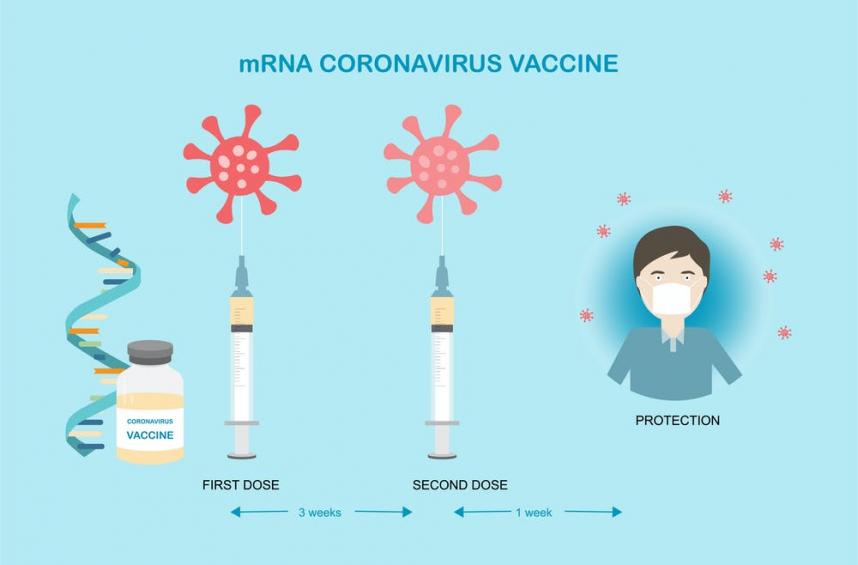
mRNA vaccines may need more study for treating some cancer patients
COVID-19 vaccines that employ new messenger RNA (mRNA) technology to fend off the illness may require further testing before it becomes clear they are safe for cancer patients with solid tumors, cancer treatment experts say.
That would include the vaccines from Pfizer Inc with partner BioNTech SE and from Moderna Inc.
The vaccines work by carrying genetic instructions for making a protein from the virus that the immune system learns to recognize and defend against.
The mRNA is encased in a microscopic "packet" called a lipid nanoparticle (LNP), or liposome, that protects and delivers the fragile molecule into cells. While this technique is new for vaccines, it has long been used to carry cancer drugs into tumors, because tumors easily take up liposomes. This raises the possibility that tumor tissues would capture some of the liposomes carrying the vaccine's mRNA, said Gerard Milano of Nice University in France.
The potential for part of the vaccine to become stuck in tumors and the resulting effect on cancer patients "is an open question to which there is currently no answer," Milano said. In a paper published on Wednesday in the British Journal of Cancer, his team calls for "a careful evaluation of the efficacy of these promising mRNA COVID-19 vaccines administered as lipid carriers for patients with solid tumors, including a possible re-appraisal of the dosing for optimal protection of this specific and frail population."